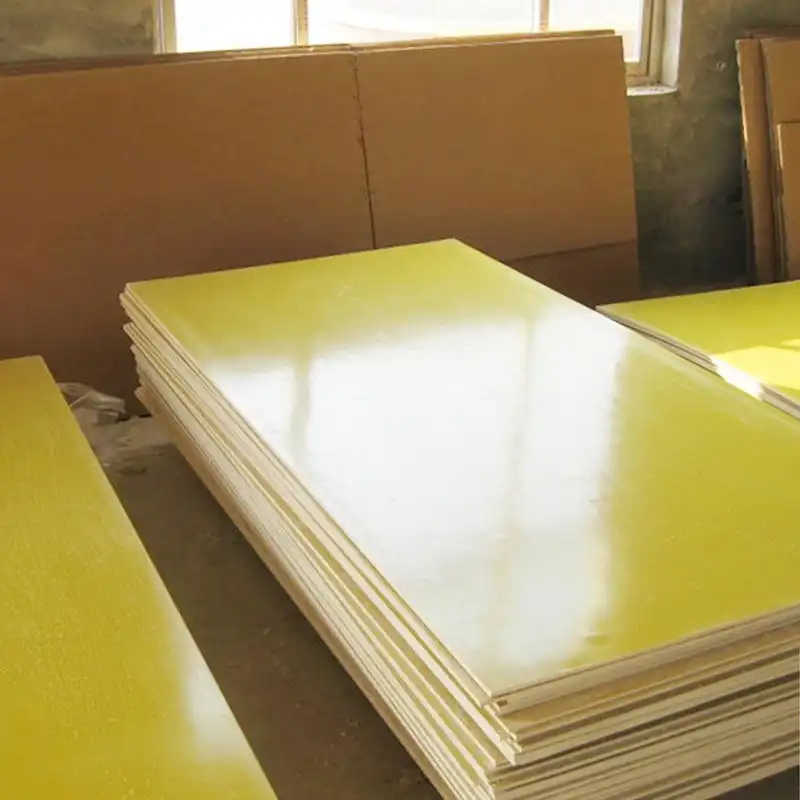Understanding Epoxy Sheets: Properties and Applications
Composition and Characteristics of Epoxy Sheets
Epoxy sheets are versatile materials composed of epoxy resin and hardeners. These sheets exhibit remarkable strength, durability, and chemical resistance. The unique molecular structure of epoxy allows for excellent adhesion properties, making it ideal for various industrial applications. Epoxy sheets also boast low shrinkage rates, high dimensional stability, and impressive electrical insulation capabilities.
Types of Epoxy Sheets
There are several types of epoxy sheets available in the market, each tailored for specific uses. Glass-reinforced epoxy sheets offer enhanced mechanical properties, while carbon fiber-reinforced variants provide superior strength-to-weight ratios. FR-4 epoxy sheets are popular in the electronics industry due to their flame-retardant properties. Understanding the distinctions between these types is crucial for selecting the appropriate material for your project.
Common Applications of Epoxy Sheets
Epoxy sheets find applications across diverse industries. In aerospace, they're used for aircraft components and structural repairs. The electrical sector utilizes epoxy sheets for printed circuit boards and insulation purposes. Marine industries rely on epoxy sheets for boat building and repairs due to their water-resistant properties. Additionally, epoxy sheets are employed in the automotive industry for lightweight body panels and in construction for durable flooring solutions.
Factors to Consider When Buying Epoxy Sheets in Bulk
Quality and Grade Specifications
When sourcing epoxy sheets in bulk, it is crucial to assess their quality and conformity to relevant standards. Review technical datasheets and certifications such as ISO, UL, or RoHS to ensure the material meets your operational needs. Key performance indicators include tensile strength, flexural modulus, dielectric properties, and thermal stability. Choosing the right grade ensures reliability in demanding environments and supports long-term performance. Investing in high-grade epoxy sheets reduces the risk of defects and helps maintain consistent product quality across production cycles.
Customization Options
Bulk orders often open the door to customization, allowing you to optimize epoxy sheets for your specific application. Manufacturers may offer tailored dimensions, pre-cut shapes, color variations, or resin formulations with enhanced characteristics such as flame retardancy or UV resistance. These options can streamline your fabrication process, minimize material waste, and improve product integration. Early communication with the supplier about customization requirements ensures feasibility and helps align production capabilities with your project timelines and technical specifications.
Pricing and Volume Discounts
Cost efficiency is a key factor in bulk purchasing, but it must be weighed against quality. Request detailed quotations from multiple suppliers and evaluate what is included—such as freight, packaging, and potential taxes or duties. Many vendors offer sliding-scale discounts based on order quantity, which can significantly reduce unit costs. However, extremely low prices may signal compromised quality or inconsistent supply. A comprehensive cost analysis, including long-term performance and service life, provides a more accurate picture of overall value.
Navigating the Procurement Process
Supplier Evaluation and Selection
Selecting a reliable supplier is a critical first step in procuring epoxy sheets in bulk. A thorough evaluation should include reviewing the supplier’s certifications, client references, and manufacturing standards. Suppliers with deep expertise in epoxy materials are better equipped to offer technical guidance and respond to custom requirements. Additionally, assessing their quality assurance protocols, production scalability, and consistency in meeting lead times ensures that your supply chain remains stable and that material quality is upheld throughout every delivery.
Sampling and Testing Procedures
Sampling and testing are essential for verifying that the epoxy sheets meet your specifications and functional requirements. Request sample sheets that reflect the full production batch and test for key properties such as thickness uniformity, tensile strength, and thermal resistance. Clearly outline the acceptance criteria to avoid miscommunication. If possible, visit the supplier’s site for firsthand evaluation or request third-party lab analysis for objective results. Early testing helps prevent costly production issues and ensures compatibility with your intended application.
Logistics and Storage Considerations
Managing the logistics and storage of bulk epoxy sheets requires strategic coordination. Confirm whether your facility has adequate space and environmental controls to preserve material quality. Epoxy sheets should be kept flat in a cool, dry area, shielded from moisture and UV exposure. Work closely with your supplier to arrange protective packaging for safe transit, especially for long-distance or international shipping. Familiarize yourself with customs documentation and import duties to avoid clearance delays and ensure timely delivery of materials.
Conclusion
Buying epoxy sheets in bulk requires a thorough understanding of material properties, market dynamics, and procurement strategies. By considering factors such as quality specifications, customization options, and supplier reliability, you can make informed decisions that align with your project requirements and budget constraints. Remember to conduct proper testing, plan for logistics, and maintain open communication with your chosen supplier throughout the process. With the knowledge gained from this guide, you're well-equipped to navigate the complexities of bulk epoxy sheet purchases and secure high-quality materials for your industrial applications.
Contact Us
Ready to take the next step in your epoxy sheet procurement journey? Contact our experienced team at info@jhd-material.com for personalized assistance and expert guidance on bulk purchases. Let us help you find the perfect epoxy sheet solution for your specific needs.






